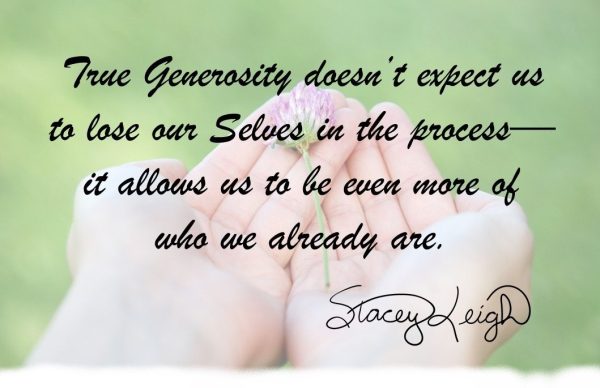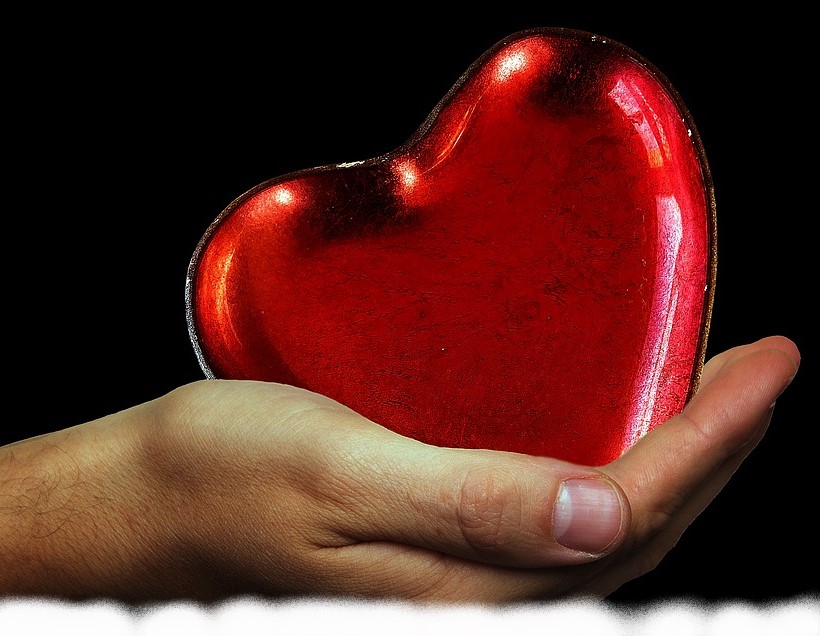Toxic “Generosity” and the Myth of Sacrifice

19 December 2019 | Theme: Generosity | 6-Minute Read | Listen
Generosity is always a good thing, right? So the more generous a person is, the better—and you can never have too much. Or can you?
I think most of us want to be generous people—or at least, we want to be seen as generous people. Society teaches us that giving is a virtue, so we may reason that more giving means more virtue. But at some point, being overly generous can backfire and become toxic to ourselves and others.
Are you the one who always says yes when someone else needs help moving, even though it means that you have to give up your plan to spend the weekend recovering from a rough week? Do you find yourself driving friends to the airport in the middle of the night, even though you have to give a big presentation the next morning? Do you pick up the tab every time you dine with friends, only to feel strapped for cash by the end of the month? Then you may be a toxic giver.
It isn’t the giving itself that is toxic—the actions of helping and paying for others can be purely generous. But when doing so comes at great expense to yourself, when you end up being depleted and your wallet deflated, when you feel resentful to others for taking so much, it’s highly likely that you are trapped in a pattern of toxic “generosity.”
I put “generosity” in quotes because I don’t think that that kind of giving is really Generosity. When you’re feeling stressed and resentful, it is no longer Generosity—it’s people pleasing, which is a form of self-flagellation. It comes not from abundance, which is the source of Generosity, but from a place of not-enough. The subconscious belief behind it is, “If I do this for them, then I am worthy.”
It amounts to what Karyn Polewaczyk terms “pathological giving,” which leaves “feeling wrung-out or resentful—or even hurting or offending intended recipients.”
Polewaczyk writes, “psychotherapist and executive coach Jonathan Alpert says that over-givers and people pleasers go hand in hand. ‘Over-givers use gifts as a way to gain and keep friends, because they think they need to be overly generous to be liked,’ he says.” Interestingly, though, the logic backfires. According to a study cited in The Economist, people don’t particularly like others who are too generous, any maore than they like those who are selfish.
To understand this, think of the last time someone did something for you. If there was give and take—balance between who gives and who takes—then you probably have good feelings about the other person. But if the other person is constantly buying you gifts for no real reason, or overspending on you, or doing you favors that you can’t (or don’t want to) repay, then you probably feel uneasy about the whole relationship. And for good reason—the relationship is not a healthy one.
The concept of generosity is often tied to the idea of “selfless giving.” Some have argued that there is no such thing as complete selflessness—that everything we do has a motive behind it, even if it’s as simple as to feel good about being helpful. There is no dishonor in wanting to feel good about the way we are in the world! It’s wonderful to do something generous out of abundant love.
It gets twisted and convoluted, though, when the giving is “self-sacrifice”—neglecting of self and paying hyper-attention to others, as Michal MJ Jones writes, is codependency. Women—and as Jones adds, Black girls in particular—are socialized to put others first. It is how we are taught to show our love for others. We have been fed a myth that we must sacrifice ourselves in order to “fix” others or “help” them in some way.
Dr. F Emelia Sam writes, “We’re quick to say ‘I sacrificed for the sake of (fill in the blank).’ My family, my kids, my job… That sounds noble enough until you really break it down. What some of us really mean to say is ‘I sacrificed myself. I abandoned my heart. I neglected my soul.’” She adds that “sacrifice” comes from the root sacrificium, meaning “to make sacred.” “Real sacrifice,” Sam says, “honors the sacredness of your being.”
So while selflessness may come from a loving heart, it doesn’t come from a liberated heart. When we act out of obligation or fear of disappointing someone, we aren’t being generous, and as Amy Oscar says in Sam’s article, “When I am afraid that I am going to disappoint someone, I am already disappointing someone. Me.”
True Generosity doesn’t expect us to lose our Selves in the process—it allows us to be even more of who we already are. When we love and care for our own Selves, when we heal our wounds so that we can open our hearts fully, we give to others out of our abundance, and that brings joy and harmony into our lives and theirs. To cite the well-worn cliché, it’s like putting on your own oxygen mask before helping others.
The liberated heart knows that nobody else needs fixing, and that if they need help, they may ask for it. If they don’t ask, the well-intentioned person may offer to help rather than swooping in with all the solutions. The liberated heart gives not from a desire to gain acceptance or approval, but from a desire to share her abundance with others. The liberated heart is able to be attuned to the needs of the world because it is in harmony with itself.
I hope for you, Dear Reader, that you may give joyfully from your abundance as you honor the sacredness of your highest self.
Until next time,

Resources:
Jones, Michal MJ. “How Being ‘Selfless’ Taught Me Unhealthy Codependency.” The Body Is Not An Apology Magazine, 4 September 2019. https://thebodyisnotanapology.com/magazine/the-value-of-being-selfless-taught-me-unhealthy-co-dependence-mj-micah-jones/
Polewaczyk, Karyn. “Being Too Generous Could Hurt Your Relationships. Here’s Why.” Life Hacker, 13 May 2013. https://lifehacker.com/being-too-generous-could-hurt-your-relationships-heres-504643770
Sam, Dr. F Emelia. “The Myth of Sacrifice.” Huffpost, 13 July 2016. https://www.huffpost.com/entry/the-myth-of-sacrifice_b_57866958e4b0b107a2403559
Svoboda, Elizabeth. “Selflessness or Self-Sabotage? When Generosity Goes Too Far.” Psychology Today, 5 July 2013. https://www.psychologytoday.com/us/blog/what-makes-hero/201307/selflessness-or-self-sabotage-0
If you enjoyed this article,
please share on social media!
NEXT ARTICLE

Generosity is Good All Around
26 December 2019 | Theme: Generosity | 6-Minute Read
What Black Friday is to retailers, end-of-year giving is to nonprofits. Retailers typically begin earning a profit for the first time all year—become “in the black”—during the Thanksgiving weekend. Similarly, nonprofits count on end-of-year donors to help them keep their doors open so that they can keep . . .